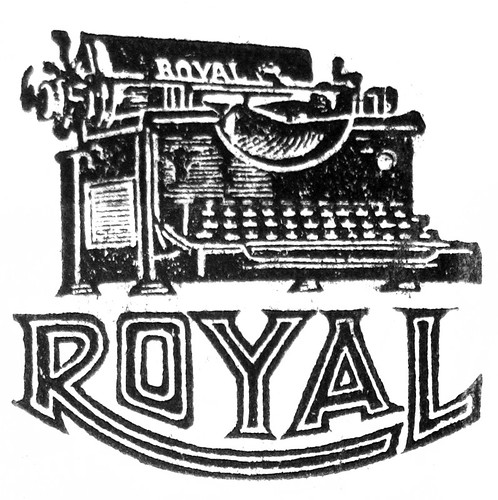- ztyper
- Key Master
 Offline
Offline 
- From: Somewhere in New Jersey
- Registered: 01-10-2014
- Posts: 773
Why?
This is just a question that popped into my head right now; but what are the reasons that you got into typewriters? They're not the most useful machine in modern times (let's face it, they're obsolete, but that doesn't stop us from loving them) and they only do a single task, so why does anyone catch the bug and start collecting? What are your reasons for collecting?
Here, I'll start:
I had always wanted a typewriter since I was very little, and it wasn't until I got student of the month in 6th grade that my mother gave me her old Olympia SM-9. I used it a few times for 2 years, but it wasn't until July of 2014 that it started. I was vacationing down in Virginia and my family went into a shabby antiques shop. I saw (if I remember correctly) a 50's blue Underwood portable. I offered the guy $30 (it should have been less due to the condition) and he refused saying "they're collectable!" So I left without saying a word because I knew nothing about typewriters. Since that day, I caught the bug and have been wanting to go back to buy that Underwood for $10, and to kinda rub it in his face.
A high schooler with a lot of typewriters. That's pretty much about it.
- TypewriterGuy
- Typewriter Talk Vet
 Offline
Offline 
- From: United States
- Registered: 24-4-2015
- Posts: 1,250
Re: Why?
Well, I think this is how I started.
I read a book that mentioned a typewriter. Then, a half year later, I say a broken Royal KMG for 5$ at an antique shop, and bought it. And thats how I started.
Last edited by TypewriterGuy (23-6-2015 06:06:22)
Back from a long break.
Starting fresh with my favorite typer. A Royal Futura!
- colrehogan
- Key Master
 Offline
Offline 
- From: Granite City, IL
- Registered: 05-2-2015
- Posts: 612
Re: Why?
Saw a link over on fountain pen network and followed it over here. I think it was in a post made by Beak. ![]()
I do have fond memories of my mom typing my term papers in school on her white Royal Quiet Deluxe. Still haven't been able to determine if that machine is in their basement. ![]() That is the reason that I bought a white Royal Quiet Deluxe.
That is the reason that I bought a white Royal Quiet Deluxe. ![]() My one and only electric was the one I used in high school to practice my typing on.
My one and only electric was the one I used in high school to practice my typing on. ![]()
After rescuing several others from my parents' basement, I found that they were fun to type on (or is that play with?) ![]() Anyway, that's how I started.
Anyway, that's how I started.
Smith Premier typewriters are cool!
- Uwe
- Moderator
 Offline
Offline 
- From: Toronto, Canada
- Registered: 12-3-2013
- Posts: 4,410
Re: Why?
ztyper wrote:
They're not the most useful machine in modern times (let's face it, they're obsolete, but that doesn't stop us from loving them) and they only do a single task,
I have to disagree with your reasoning. First, just because something was designed to perform a single task doesn't automatically mean that it's less useful. I may not be able to use a can opener to mow my lawn, but it sure helps to own one if I've got a can that needs to be opened. And I'm surprised that a collector would consider them to obsolete; not only are they are still being used in many third world countries, there's been a rise in their popularity over recent years. Some people, such as myself, consider them to be an indespensible tool and use one daily.
The pronoun I has always been capitalized in the English language for more than 700 years.
- TypewriterGuy
- Typewriter Talk Vet
 Offline
Offline 
- From: United States
- Registered: 24-4-2015
- Posts: 1,250
Re: Why?
Some compinies even require things to be typed on a typewriter.
Back from a long break.
Starting fresh with my favorite typer. A Royal Futura!
- malole
- Inactive Account
 Offline
Offline 
- From: East Anglia, UK
- Registered: 02-6-2014
- Posts: 330
Re: Why?
I've always used a typewriter as I was a seventies child and later, at college, too poor to buy a computery thing. Eventually for some reason Google threw me onto eBay as I was researching 1930s and 40s typefaces for a story I was writing. On a typewriter. At the same time, I realised that my own 2 typewriters were getting a bit rock-hard on the platen, so being in the glory hole of ebay, got a new one. Then another, and another annnddd..... I blame Google. And I am weak-willed and curious.
- ztyper
- Key Master
 Offline
Offline 
- From: Somewhere in New Jersey
- Registered: 01-10-2014
- Posts: 773
Re: Why?
I guess what I meant to convey, is to most people out there in the world today, the typewriter is obsolete. They (and the normal half of me) sees it like this: Why would someone use a stone tool for cutting things instead of a metal blade? Or why walk 3,000 miles to the other side of the Earth when there are trains, cars, and airplanes? It just doesn't make sense to use a outdated technology when there are plenty of more efficient ways of doing the same task. Nobody who owns a stove uses an open fire to cook their dinner, it's just too tedious and time consuming. Even a manual typewriter is obsolete compared to an electric one. So compared to many other objects in our modern way of life (I just dated myself right there, come back in 10 years and laugh at my primitive things and hairstyle) the typewriter is by all means an obsolete machine. However, obsolete does not mean broken or unusable. A typewriter still serves its purpose of punching out words like it was designed to do over 100 years ago. It even holds a new purpose: being the symbol of those who chose to do their own thing and not follow what they are told to do just because of a societal norm or custom. Do I want everyone to use typewriters? Absolutely not. If everyone continued to use a technology that had a better alternative, then this site would be called "Printing Press Talk." But for the ones who can appreciate a thing that served its purpose for the masses long ago, and still continue to use it, I think it is alright to call them obsolete for the rest of the world.
A high schooler with a lot of typewriters. That's pretty much about it.
- •
- TypewriterGuy
- Typewriter Talk Vet
 Offline
Offline 
- From: United States
- Registered: 24-4-2015
- Posts: 1,250
Re: Why?
I know what you mean Z. Almost every other person you meet would rather use a computer.
Back from a long break.
Starting fresh with my favorite typer. A Royal Futura!
- Uwe
- Moderator
 Offline
Offline 
- From: Toronto, Canada
- Registered: 12-3-2013
- Posts: 4,410
Re: Why?
Equating a typewriter to a computer as being the equivelant of walking 3,000 miles instead of use modern transportation is nonsensical. And I suspect your ideas concerning typewriter obsolesence is more reflective of a generational attitude than the realities of the "rest of the world". I'd suggest that you read this article, and keep in mind that it's only discussing typewriter use in the United States. Outside of the United States and other wealthy countries the world over, the typewriter is a far more prevalent fixture than you realize. Here's just one small example.
It's also surprising that you would think that "there are plenty of more efficient ways of doing the same task" than using a typewriter. I'll challenge you to list just two examples of a more efficient method of putting type on a page, or an address on an envelope. I know that you won't use a computer as an example, not when this is what is involved when addressing an envelope:
1. Turn on the computer and wait for the operating system to boot up.
2. Turn on the printer.
3. Open the appropriate word processing software.
4. Find and open a template that matches the envelope size you're using.
5. TYPE in the return and destination addresses. Make sure you have correctly formatted the text.
6. Load the envelope in the printer - the right way so it doesn't print upside down or on its back.
7. Send the temlate to print.
8. Retrieve the envelope from the printer.
And hope that there won't be any power failures, software problems, printer issues, or you didn't screw something up like select the wrong template.
Now try the same thing with a typewriter. You'll be done before most computers have even finished booting up. Oh, and you won't need any power to do it. That is efficiency.
When you look at a typewriter as being a task specific tool, you will realize that in its capacity as a quick and efficient means of producing one-off text, it is just as effective today as it was 50 years ago. I'm a big proponent of using the right tool for the right job. That's why I choose to use a typewriter, which is - without question - an indispensable piece of equipment for me. To describe such a tool as being obsolete and inefficient is simply wrong.
The pronoun I has always been capitalized in the English language for more than 700 years.
- JoeV
- Touch Typist
 Offline
Offline - Registered: 11-4-2015
- Posts: 152
Re: Why?
I think I was destined to be into typewriters.
My mother died when I was five years of age. Yet, I have a memory of sitting in her lap, at a typewriter, while she worked. It was in the kitchen of our old house. I recall watching her type a line of text, then I typed the same line myself, or at least most of it. I was too young to read, and haven't been known to have a photographic memory, yet somehow was able to do that one feat.
~Joe

 1
1 